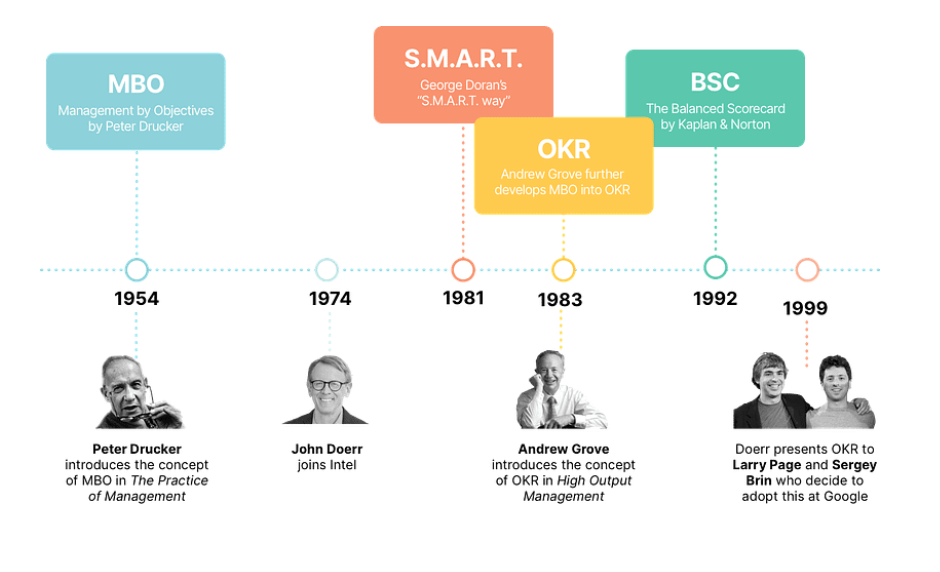What Are OKRs? Are They Useful for the Company and HR?

Do your employees know the company’s priorities? Do they know how their work contributes to fulfil strategy and goals? Are they engaged in the tasks and do they work on the right things?
MIT Sloan Review study states that only 28% of managers could name 3 strategic priorities. The employee numbers are even more alarming. According to PwC’s Strategy& statistics, 93% of employees don’t understand the company’s strategy.
What would it look like if everyone in the company knew what the company’s key priorities were, how to measure success and pull together towards a collective goal?
Objectives & Key Results (OKRs) stand for a tool for achieving ambitious measurable goals in an organisation and are used to implement its strategy. They help to co-ordinate people in order to reach the goal and indicate the key to their success. Large technology companies such as Google, Amazon, Adobe, LinkedIn are well-known users of OKRs. However, they’re already used by various companies from different fields. Even in the Czech Republic, they’re becoming really popular. There’s a large number of small and big companies that have been using them for many years or the companies that have just started experiments.
OKRs history
OKRs is still a new concept to a lot of people but this method’s been here for many years. It’s based on the Management by Objectives (MBO) method first described by Peter Drucker. Then, Andy Grove transformed MBO into OKR format and made it famous by using it at Intel in the 1970s. Later, he described the concepts in his great book High Output Management.
Google has share in the current success of OKRs. The method was introduced to the founders of the company by Google investor and former Intel employee John Doerr. Google still uses OKRs and attributes their success to the way they set and work with ambitious goals.
Source: Perdoo.com
What are OKRs components?
Objective is a qualitative expression of what we want to achieve. It’s the goal that gives direction.
Key Results are quantitative expressions of the given goal, i.e. Objective. They transform an inspirational goal into numbers (metrics) and answer the question: How do we know that we’ve achieved the Objective? Key Results shouldn’t be activities (Outputs) but measurable results (Outcomes).
Example
In 2008, at Google, Sundar Pichai decided to launch a new browser Google Chrome and make it the best and most used browser in the world.
Objective: Develop a platform of new generation for web applications
Key Result: Chrome will reach 20 million active users in seven days by the end of 2008
The example shows the decision how to measure and know that we’ve achieved our goal of building the best and most used browser. Success will be determined by the active users.
Google didn’t reach this target in 2008. It reached half of that – 10 million active users. In 2009, they decided to set Key Result at 50 million. They achieved 37 million. In 2010, they managed to surpass their goal – instead of planned 100 million, they reached 110 million active users. And Chrome is still the leading browser in the world.
OKRs benefits
It should be noted that OKRs don’t define the way how to use and implement them. It means that each company will have different motivational tools, problems and opportunities for use, and will therefore aspire to its particular needs and individual benefits. However, we can summarise the OKRs key benefits:
- Focus – focusing on what’s the most important for the company or team (depending on the level) in a given period
- Co-ordination – everyone in the company is aware of the target and how to co-operate to achieve the strategy and vision
- Adaptability – adapting to the current situation and market challenges
- Learning – the company and people learn quickly what works and what doesn’t work, and they become aware of this knowledge through set routines
- Transparency – goals, progress or lessons are transparent for all; it’s useful for keeping people informed and for decision-making
- Stretching – ambitious goals help to perform better and look for new creative ways to reach the goal
- Customer focus – OKRs support customer-oriented discussion and focus, and delivering the best value
- Engagement in work and meaning of work – by linking daily work to company’s higher goals and opportunities to create your own plan to contribute, we increase motivation and meaning of work
What are OKRs used for?
OKRs are used as strategy implementation. They should reflect what we want to change, what’s the most important in the strategy at this moment and what to move forward. Though, that isn’t all the work we do. There’s usually something like normal operational issues called BAU (Business-as-usual), e.g. customer support requests, defect solution, payroll processing, etc. In some teams, even an AI voice agent handling inbound calls would fall under BAU, unless it’s part of a broader initiative being tracked with OKRs. It’s good to monitor health of our business through health metrics or KPIs (Key Performance Indicators) and manage change issues through OKRs.
OKRs = changing business
KPIs = managing business
They work best together. For example, it may happen that a given KPI gets to an unhealthy level and therefore becomes OKR at some point – we’ll crack down on important things and make necessary changes to get that KPI back to a healthy level so that we can continue to focus on growth issues.
So, it’s not appropriate to put everything we’re dealing with in OKRs. OKRs may not be the most suitable tool for some teams, some periods or some issues and we can use e.g. project management or some other way.
Conclusion
We’ve taken a brief look at what OKRs are and why they’re beneficial. OKRs are a great tool for the company that allows to take advantage of human potential when implemented and used correctly. It provides a framework, to HR leaders and specialists, how to formulate goals in the organisation and increase employee engagement and performance. OKRs often reveals what doesn’t work and provide an opportunity to improve the internal functioning of the company and build a long-term prosperous and stable company.
Do you need help with the introduction and implementation of OKRs in your company? Or have you already tried OKRs but you think you couldn’t reach their full potential? Contact the experts with OKRs practical experience. They’ll be pleased to help you get OKRs to the next level at www.leapstones.cz. Or just click on mastermind and learn about experiences and recommendations from other companies using them in practice at www.okmastermind.cz.





